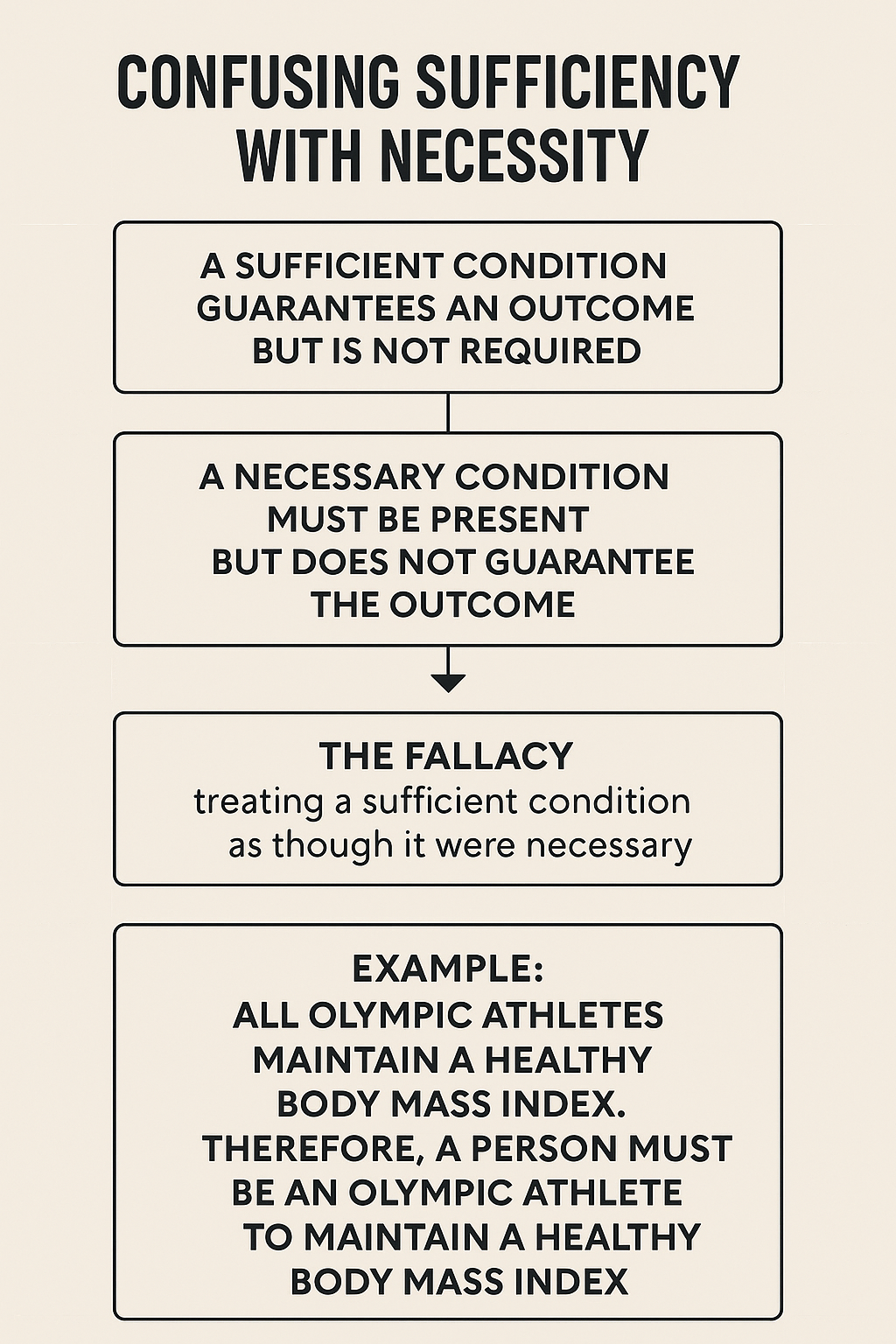Invest 30 seconds...
...for what may lead to a life altering association!
Help Line
- +91.8800.2828.00 (IND)
- 1030-1830 Hrs IST, Mon-Sat
- support@expertsglobal.com
...for what may lead to a life altering association!


GMAT CR sometimes hides the fallacy of treating a sufficient condition as necessary. Example: “Members get free entry, so only members can enter free”; flaw: membership may be one way to get free entry, but promotions, guests, or passes could also qualify.
Critical Reasoning frequently tests whether you can separate sufficient from necessary conditions. This overview frames the distinction, shows how arguments mistakenly swap them, and previews a practical check: identify the stated condition, ask whether it guarantees the outcome or merely must be present, and consider counterexamples. The video illustrates this lens across strengthen, weaken, and evaluation items. The habits discussed support disciplined note-making in GMAT prep and carry into evidence-based writing, interviewing, and policy analysis and assessment in MBA admissions.

One subtle but powerful reasoning flaw that appears in GMAT Critical Reasoning questions is the mistake of confusing a sufficient condition with a necessary condition. While this may sound abstract, its impact on argument evaluation is very concrete.

A sufficient condition ensures that something will happen, but it is not the only possible route to that outcome. A necessary condition must be present for the outcome, but its presence alone does not guarantee success. Confusing the two leads to flawed conclusions.
Consider the following…
All Olympic athletes maintain a healthy body mass index.
Inference 1: One must be an Olympic athlete to maintain healthy body mass index.
Inference 2: If one maintains healthy body mass index, one is an Olympic athlete.

Step 1: Start with the question stem to identify the precise requirement.
Step 2: Work through the reasoning carefully; construct a Mind map and locate the missing link.
Step 3: Clarify your broad expectation from the correct answer choice.
Step 4: Eliminate four options; the option that remains is your answer.
Conduct a final verification before confirming.
Consider the following…
Although many scholars dismiss Nietzscheism as a pseudo-philosophy, it is, in fact, a branch of philosophical thought, for it utilizes philosophical disciplines such as the systemic examination and evaluation of opinions on metaphysics and morality to realize cognitive and eudemonic goals.
Question: The most serious flaw in the argument is that…?
Correct Answer: It assumes that any field of study that employs philosophical disciplines is a branch of philosophical thought.
This article center on learning to distinguish necessary from sufficient conditions in logical reasoning. Many arguments on the exam rely on blurring this distinction, so test-takers must carefully ask whether a condition is merely required or whether it alone guarantees the outcome. Developing this sensitivity ensures accuracy across strengthen, weaken, and evaluation questions. Consistent practice through GMAT simulation reinforces the habit of spotting such traps, allowing students to apply structured reasoning effectively on test day and beyond.
The distinction between necessity and sufficiency extends beyond test-taking into the way we make decisions in academics, careers, and life. Success is never guaranteed by one factor alone, even if that factor is essential. Leadership, opportunity, and effort are necessary, but none is sufficient without the others. The same reflective habit that sharpens reasoning on the GMAT also prepares candidates for balanced choices in GMAT mock tests practice, MBA applications, and professional growth. True wisdom lies in recognizing that outcomes emerge not from isolated conditions but from the thoughtful integration of many interdependent elements.